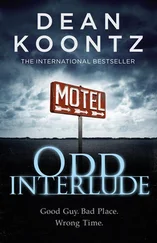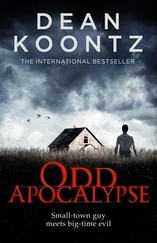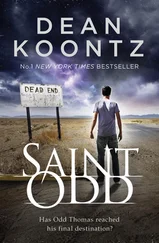“It’s not. What we do is we celebrate the concept of harvest, whatever that means. Town’s always been run by an inbred bunch of fools, our foundin’ families.”
The buildings had sailed beyond sight. Here and there, a blush of neon remained, but those signs were incoherent now, the glass words having shattered into meaningless syllables of nebulous color.
Birdie said, “What’s your line of work, Harry?”
“Fry cook, ma’am.”
“Fell in love with a fry cook once. Beans Burnet, short-order wizard. A dream, that man.”
“We fry cooks tend to be romantic.”
“In Beans’s case, not enough. He loved his pancakes and home fries more than women. Worked all the time.”
“In his defense, Birdie, it’s an enchanting occupation. You can lose yourself in it.”
“Sure liked the way he smelled.”
“Beef fat and bacon grease,” I said.
She sighed. “Fried onions and green peppers. You don’t measure up to Beans in smell, Harry.”
“I’ve had a different kind of job the past month, ma’am. I’ll be back at the griddle eventually. I sure do miss it.”
“Then came Fred, my life mate, and I forgot all about fry cooks. No offense.”
Birdie changed streets at a shrouded intersection of which I had been unaware until she pulled the steering wheel to the right.
Having been engineered to isolate the driver from the roughness of the pavement, the big sedan rode like a boat. Sloshing tides of fog enhanced the perception that, with wheels retracted, the Cadillac wallowed along Venetian canals.
Although Birdie Hopkins drove below the speed limit, we were moving too fast for the dismal visibility.
“Ma’am, should we really be driving blind?”
“You might be ridin’ blind, child, but I’m drivin’ with sunny-day confidence. Been cruisin’ this town almost sixty years. Never had an accident. Weather like this, we have the streets to ourselves, so they’re even safer. When the sick and sufferin’ need me, I don’t say they gotta wait till mornin’ comes or till the rain stops.”
“Are you a nurse, ma’am?”
“Never had time for school. Me and Fred were in garbage.”
“I’m sorry to hear that.”
“Collection, I mean. Started with two trucks and no fear our hands might get dirty. Ended with a fleet, sole contractor for six towns along the coast. Garbage is like sunrise-never stops comin’.”
“So true.”
“You can get rich doin’ work others won’t. Garbage was gold.”
“A lot of times,” I said, “when a restaurant’s really busy, there’s a lot of stress being a fry cook.”
“Don’t doubt that for a second.”
“I’ve thought about switching into tire sales or shoes. Is the garbage business stressful?”
“Sometimes for management. For a route driver, it’s so the same day after day, it gets to be like meditation.”
“Like meditation, yet you’re providing a good service. Sounds real nice.”
“Fred died seven years ago, I sold out two years later. You want, child, I can still open doors in the garbage world.”
“That’s generous, ma’am. I might take you up on that one day.”
“You’d be a good route driver. Can’t look down on the job and be any good. I can tell you don’t look down on anyone.”
“That’s kind of you to say. The reason I wondered if you were a nurse is, before garbage, you mentioned the sick and suffering.”
As if receiving directions beamed from a MapQuest satellite to her brain, Birdie turned left into a billowing white wall, and the Cadillac wallowed into a new canal.
She glanced at me, turned her attention to the invisible street, reached one hand up to adjust her feathered hat, glanced at me again, pulled to the curb, and put the car in park.
“Harry, somethin’ about you is too different. I can’t do this the usual way. Feel like I should get right to it, say I didn’t come to you by chance.”
“You didn’t?”
She left the engine running but switched off the headlights.
Fathoms of fog pressed upon the car, so it seemed as though we rested on the floor of a sea.
“You were a twinge before you were a face,” Birdie said. “For all I knew, you’d be another Nancy with cancer or like a Bodi Booker makin’ hot cocoa for suicide.”
She waited for me to reply, so at last I said, “Ma’am, I think maybe the fog got in my head, because I can’t see any sense in what you just told me.”
“What I think,” she said, “you’re in worse trouble than just a Swithin flat busted from bad romance.”
BIRDIE HOPKINS TOOK OFF HER WHITE GLOVES. She slipped one over the gearshift knob and one over the turn-signal lever, so that the Cadillac seemed to be waving at me.
“Seventy-eight years old, still a hot flash now and then. But it’s not the slowest change of life in history. Been done with all that long ago. Has something to do with the twinges.”
From the large purse that stood on the seat between us, Birdie withdrew a Japanese fan, unfolded it, and fanned her plump face.
“Fred died, it started.”
“Seven years ago,” I said.
“Love somebody from when you’re nineteen, one day he’s the same as ever, next day dead. So many tears, they seem to wash somethin’ out of you, they leave this emptiness.”
“Loss is the hardest thing,” I said. “But it’s also the teacher that’s the most difficult to ignore.”
Her fanning hand went still. She regarded me with an expression that I took to be surprised agreement.
Because Birdie seemed to expect me to elucidate, I fumbled out what I thought she might want to say herself: “Grief can destroy you-or focus you. You can decide a relationship was all for nothing if it had to end in death, and you alone. Or you can realize that every moment of it had more meaning than you dared to recognize at the time, so much meaning it scared you, so you just lived, just took for granted the love and laughter of each day, and didn’t allow yourself to consider the sacredness of it. But when it’s over and you’re alone, you begin to see it wasn’t just a movie and a dinner together, not just watching sunsets together, not just scrubbing a floor or washing dishes together or worrying over a high electric bill. It was everything, it was the why of life, every event and precious moment of it. The answer to the mystery of existence is the love you shared sometimes so imperfectly, and when the loss wakes you to the deeper beauty of it, to the sanctity of it, you can’t get off your knees for a long time, you’re driven to your knees not by the weight of the loss but by gratitude for what preceded the loss. And the ache is always there, but one day not the emptiness, because to nurture the emptiness, to take solace in it, is to disrespect the gift of life.”
After a moment, she fanned her face again, and closed her eyes.
I gazed through the windshield at the desolation of fog, which might have been the waste and void from the time before time, when mankind did not exist or any beast, when there was only darkness on the face of the deep.
Birdie said, “What you said. All of it. Same for me. So one day my emptiness was filled. First twinge came. Tuesday afternoon in May, it was. Not a physical twinge. Just a feelin’, like why don’t I drive one of the old garbage-collection routes. Wound up at Nancy Coleman’s place, former employee of ours. Husband left her a year earlier. Four hours before I show up, she gets a cancer diagnosis. Scared, alone. That year, I drove her to chemo, doctors’ appointments, shoppin’ for a wig, spent so much time together, more laughin’ than either of us would have thought at the start.”
Читать дальше
Конец ознакомительного отрывка
Купить книгу
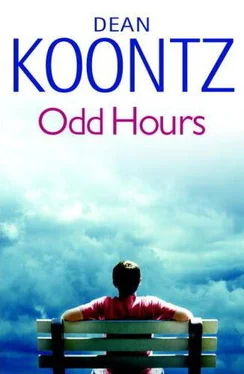
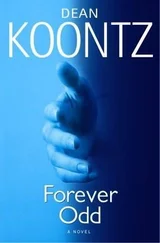
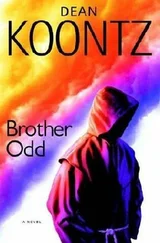
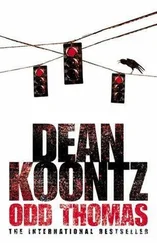



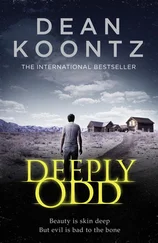
![Dean Koontz - You Are Destined To Be Together Forever [an Odd Thomas short story]](/books/705298/dean-koontz-you-are-destined-to-be-together-foreve-thumb.webp)

